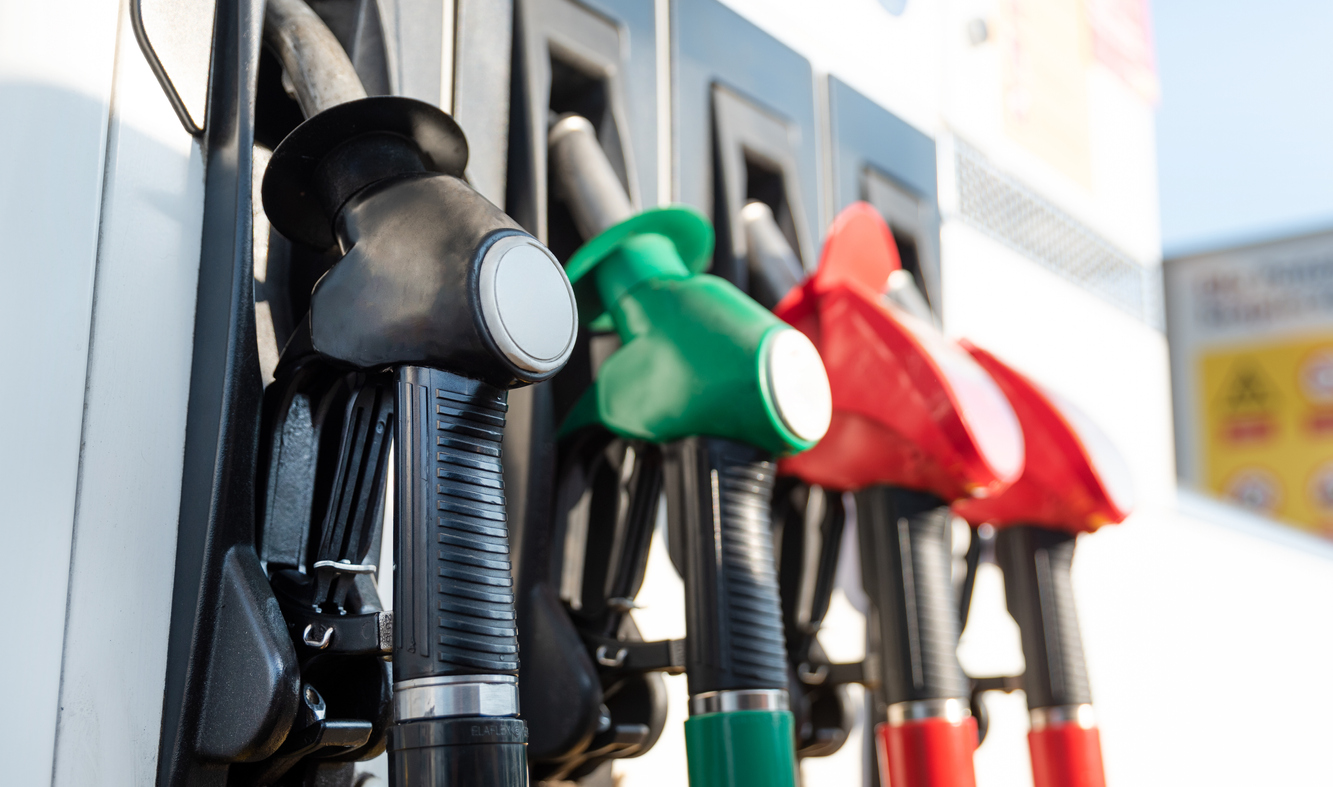A Comprehensive Guide to Buying and Exporting Refined Petroleum from Rwanda
A Comprehensive Guide to Buying and Exporting Refined Petroleum from Rwanda
Rwanda is a small and landlocked country located in East-Central Africa. With a booming economy and a rapidly growing population, the demand for refined petroleum products has increased sharply in recent years. Refined petroleum products are essential for everyday activities, from powering transportation and industry to providing energy for households. To meet this growing need, Rwanda has become a major player in the refined petroleum market. As a result, many businesses are now looking to buy and export refined petroleum from Rwanda. This guide provides a comprehensive overview of the process, from understanding the Rwandan market to finding the best suppliers. With this information, you will be able to source and export quality refined petroleum at the best prices.
Overview of the Rwandan Refined Petroleum Market
The Rwandan refined petroleum market is a vibrant and growing market. The demand for refined petroleum products has been increasing sharply, especially for transportation and in industry. In recent years, the volume of refined petroleum imported into the country has more than doubled. Currently, about 93% of refined petroleum products used in Rwanda are imported. Some of the major importers are TOTAL, CNI, ESSO, and BRIDG. In 2017, the total volume of refined petroleum imported into the country was around 4.98 million metric tons. The major destinations for refined petroleum include Kigali, Gisenyi, and the Southern Province. The refined petroleum market in Rwanda is highly regulated to ensure proper distribution and quality standards are met. All refined petroleum importers are required to register with the National Oil Corporation (NOC) and obtain a license. In addition to the NOC, transportation of refined petroleum products is regulated by the Rwanda Revenue Authority (RRA). Both agencies impose taxes on imported refined petroleum products, which vary according to the quantity and grade of refined petroleum. Currently, the major imported refined petroleum product is Low Sulfur Diesel (LSD).
Understanding the Regulatory Framework
The Rwandan government is extremely focused on improving the industry standards and ensuring proper regulatory compliance. They use a third-party audit system to inspect the facilities of registered importers. The third party audits are intended to ensure importers are in compliance with the country’s regulatory requirements. In addition to third-party audits, the NOC and RRA conduct regular inspections of registered facilities. If regulatory non-compliance is discovered, sanctions are applied. Refined petroleum importers are expected to comply with all applicable regulations. If your company is looking to buy and export refined petroleum from Rwanda, it is important to understand the regulatory requirements and have a compliance plan in place. This will help expedite the importing process and ensure you receive the refined petroleum product you need on time.
Identifying the Best Suppliers
Before you start sourcing refined petroleum to export from Rwanda, it is important to conduct thorough market research. This will help you understand the current market conditions and identify potential suppliers. There are a number of factors you should consider when conducting market research, including price, quality, quantity, delivery terms, and reputation. To begin, you can use online marketplaces like TradeHarbour to find potential suppliers. In addition, you can also use trade publications and industry forums to identify potential suppliers. When evaluating potential suppliers, it is important to consider more than just price. You should look for suppliers that offer high-quality refined petroleum products at competitive prices. You should also check the reputation of the suppliers to ensure they are reliable and trustworthy. Reputable suppliers will be able to meet all your requirements, from meeting quality standards to offering competitive prices.
Transport and Shipping Requirements
Before you start sourcing and exporting refined petroleum from Rwanda, it is important to understand the shipping requirements. According to the International Maritime Organisation (IMO), all refined petroleum products must be transported in a closed and fully sealed tank vessel. This means that, once the refined petroleum leaves the refinery, it must be transported in a Closed Bulk Container (CBC). Once you have sourced the refined petroleum product, you must transport it to the port for export to Rwanda. There are two major ports in Rwanda: Kivuse and Nshili. However, most refined petroleum suppliers are located near Kivuse Port. You should make sure to transport the refined petroleum to the port in a CBC. You should also obtain an IMO-certified shipping agent to assist you with the export process.
Negotiating Prices and Payment Terms
Before you start sourcing refined petroleum to export from Rwanda, it is important to negotiate prices and payment terms with potential suppliers. To begin, you should have a clear understanding of your budget and the quantity of refined petroleum you need. You should then approach potential suppliers with your requirements and budget. Before negotiating prices and payment terms, you should perform due diligence on the suppliers. This will help you find the best suppliers, while also protecting your company from fraud. To perform due diligence, you can use TradeHarbour’s sourcing tool. It will help you find reliable suppliers and negotiate better prices. You should also ask for valid trade references from the suppliers. This will help you assess the suppliers’ reputation and trustworthiness. Once you have done this, you can negotiate prices and payment terms with the suppliers. It is important to find suppliers that can meet your specific requirements. This will help you avoid spending too much on refined petroleum and protect your company from fraud.
Quality Control and Testing
Before you start sourcing refined petroleum for export, it is important to test the quality of the product. You should perform multiple tests to ensure the refined petroleum meets your quality requirements. Some of the common tests include Methyl Bromide (MB), Hydrogen Sulphide (HS), Water and Sediment (WAS), and Octane Number (ON). You should test the refined petroleum to make sure it meets quality standards. This will help you avoid importing refined petroleum that is not fit for consumption and protects your company from fraud. Moreover, you should make sure the supplier provides you with the test reports. This will help you ensure the quality of the refined petroleum meets your requirements. You should also make sure the supplier offers warranties on the refined petroleum product. This will help you make claims if the refined petroleum is not fit for consumption. It is important to test the refined petroleum products at each step of the supply chain. This will help you detect and eliminate quality defects or issues at the source.
Insurance and Risk Management
Before you start sourcing refined petroleum to export from Rwanda, it is important to obtain Quality Insurance. This will help you protect the refined petroleum products from damage or loss during transport. In addition to quality insurance, it is important to obtain product liability insurance. This will ensure your company is protected from product liability claims, in case the refined petroleum is harmful to human health. It is important to obtain insurance policies from reputed insurance companies. This will help you get cheap insurance policies and protect your company from fraud.
Logistical Support Services
Before you start sourcing refined petroleum to export from Rwanda, it is important to find reliable logistical support services. This will help you avoid spending too much on transportation and protect your company from fraud. Moreover, it will help you transport the refined petroleum to the port in a timely manner. You can find reliable logistics support services by using online marketplaces like TradeHarbour. It will help you find companies that offer a wide range of logistical support services.
Documentation Requirements
Before you start sourcing refined petroleum to export from Rwanda, it is important to understand the documentation requirements. You should obtain a Commercial Invoice from the refined petroleum supplier. The commercial invoice should include the following details: – Product: Brand name, description, quantity, and grade – Price: Ex-refinery, landed, and CIF prices – Terms of payment: Terms of payment Apart from the commercial invoice, you should also obtain an Export Certificate. The export certificate should include the following details: – Product: Brand name, description, quantity, and grade – Price: Ex-refinery, landed, and CIF prices – Terms of payment: Terms of payment
Finalizing the Transaction
To finalise the transaction, you should approach the refined petroleum supplier and negotiate the best price. Once you have finalised the price, you can place the order with the supplier. It is important to maintain a lengthy communication with the supplier throughout the process. This will help you keep track of the order and discuss any issues that might arise. Once the refined petroleum is ready, you can transport the product to the port for export. Before you finalise the transaction, it is important to obtain Insurance and Inspection Reports. This will help you protect the refined petroleum from damage or loss during transport.
Conclusion
Refined petroleum is an important product used in everyday activities. With a







LEAVE A COMMENT
You must be logged in to post a comment.